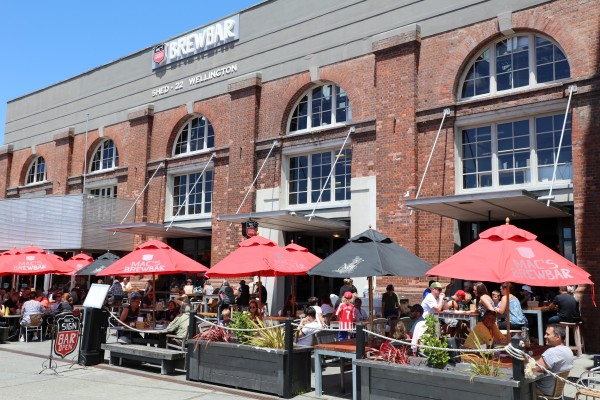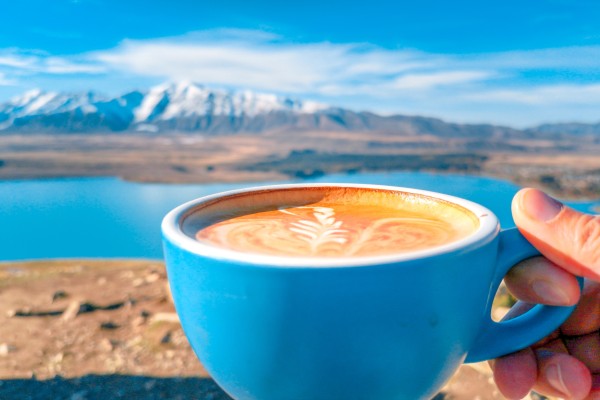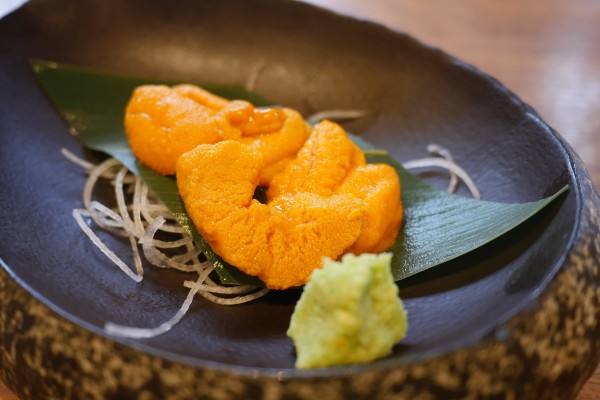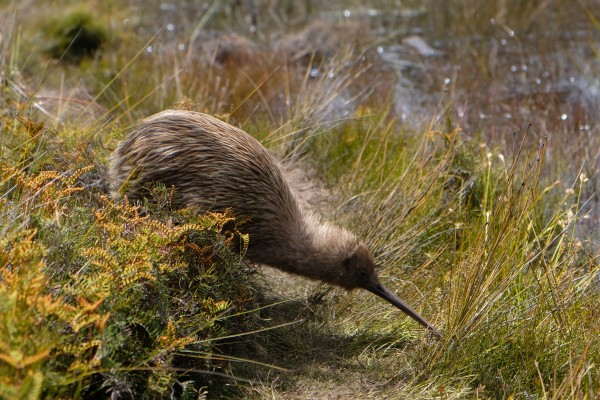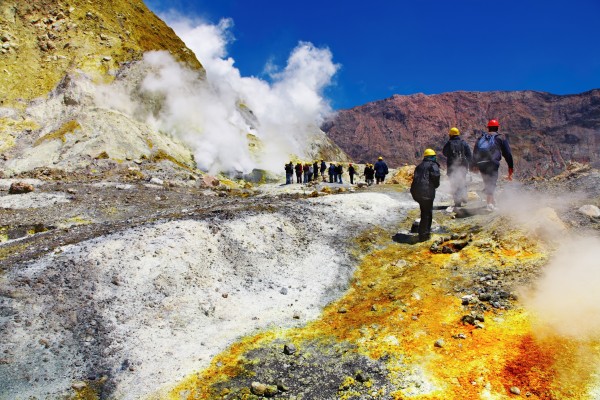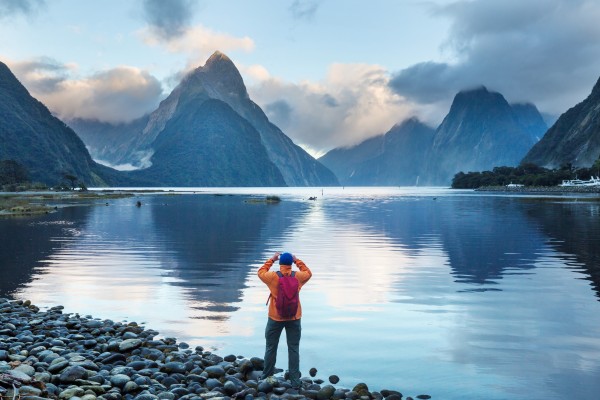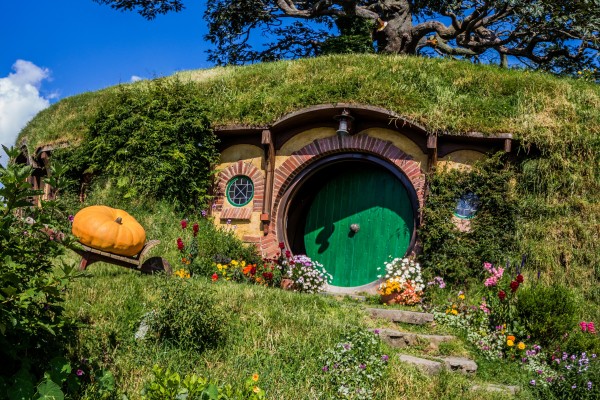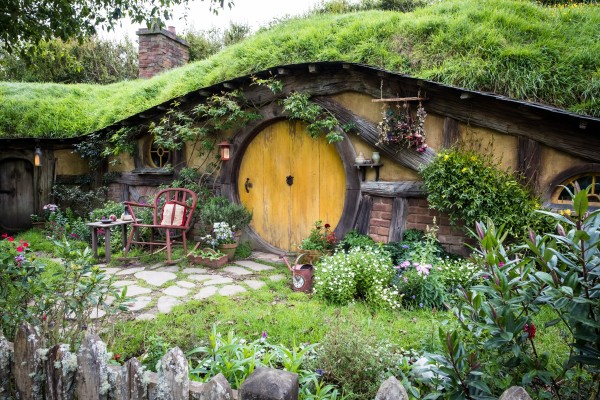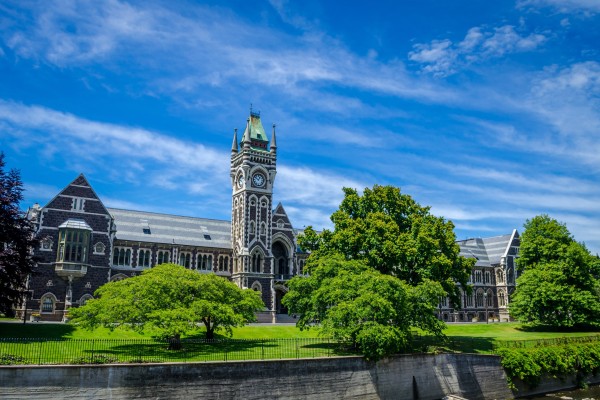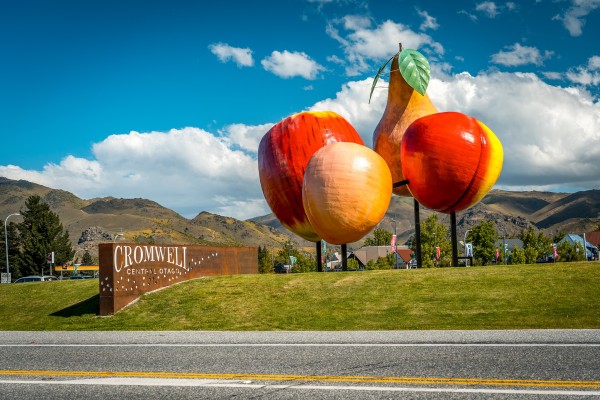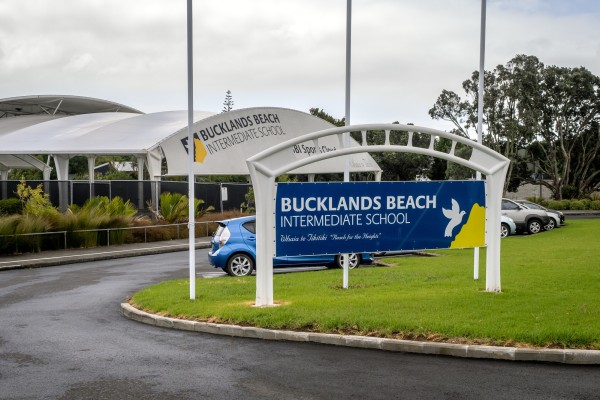Everything you need to know about New Zealand's wine industry
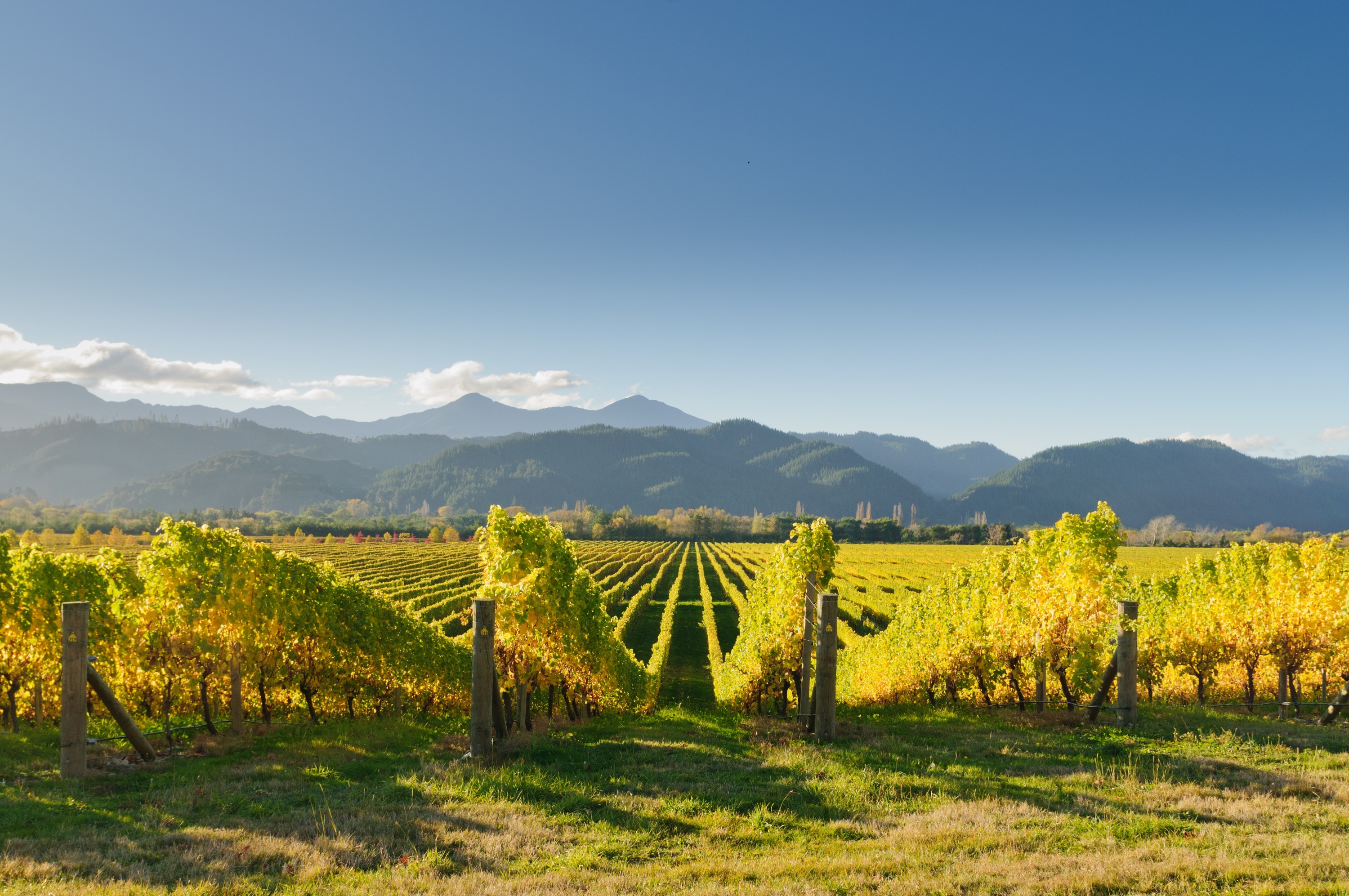
New Zealand’s wine industry accounts for only 1% of wines produced globally, but our local vineyards punch well above their weight when it comes to quality and taste.
Whether you’re a fan of wine or looking for a job in the industry, here’s everything you need to know about exploring New Zealand’s wine industry:
What are the origins of winemaking in New Zealand?
Winemaking in New Zealand can be traced back as early as the 1800s, but early attempts at growing grapes were often not very successful.
European missionaries and settlers brought grapevines to New Zealand with the intention of producing wine. However, climate challenges, diseases and a general lack of viticultural knowledge meant most vineyards ended up failing fairly quickly.
It wasn’t until 1819 that Reverend Samuel Marsden planted the first successful grapevines in the Bay of Islands. The wine industry expanded in the late 1800s, with regions such as Hawke's Bay, Auckland, and Northland experiencing growth and success in vineyard plantings thanks to their excellent growing climates. Overall, wine production was limited, especially compared to other agricultural crops.
The late 19th century and early 20th century saw a decline in the wine industry due to various challenges, including economic recessions, competition from other agricultural crops, and the devastating impact of phylloxera, a grapevine pest.
When did the New Zealand wine industry start to take off?
The New Zealand wine industry didn’t begin to take shape until the 80s and 90s. A focus on quality over quantity, introducing new grape varieties, improved viticultural practices, and more suitable regions for grape growing contributed to its resurgence.
New Zealand emerged as a major player thanks to the success of Marlborough Sauvignon Blanc, which has its own distinct flavour. Viticulturists were also experimenting with growing grapes in new parts of the country, like Central Otago, to great success.
Today, New Zealand has many growing regions throughout the North and South Islands, all producing exceptional and distinctly different types of wines.
What are New Zealand's main wine regions?
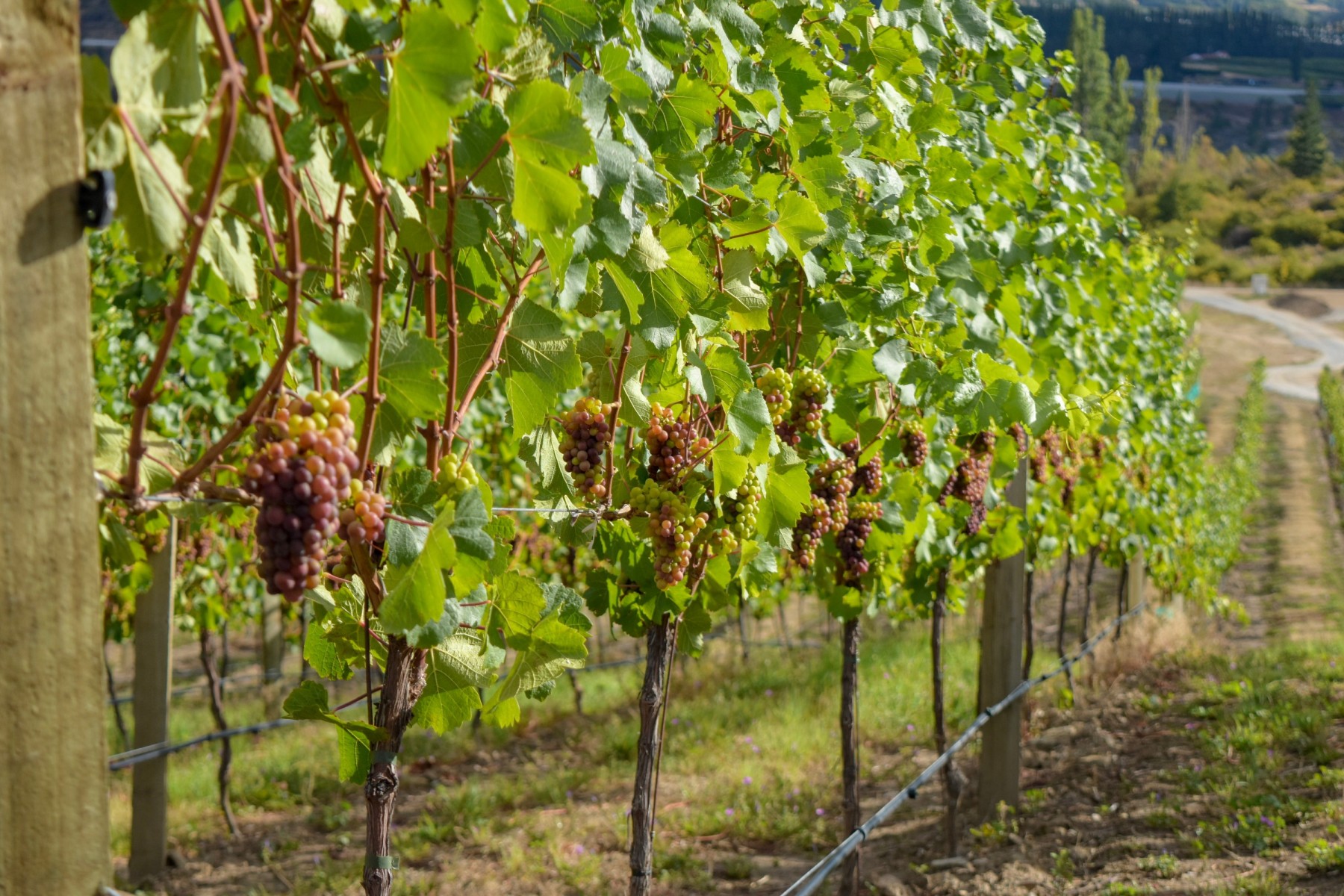
No matter where you travel in New Zealand, great-tasting, locally-produced wine is never far away! The country has ten distinct wine regions. Here are the best regions to visit:
Marlborough:
Located at the top of the South Island, Marlborough is one of the most famous wine regions in New Zealand. It is known for producing world-class Sauvignon Blanc, and many types of wines are grown here and exported for international consumption. Marlborough is also known for producing excellent Chardonnay and Pinot Noir. Viticulture is one of the major industries, with one in five people employed directly or indirectly by the wine industry.
Central Otago:
Situated in the central-southern part of the South Island, Central Otago is known for its breathtaking landscapes and is the world's southernmost wine region. Pinot Noir is the flagship grape variety from this area, with Chardonnay, Riesling, and Pinot Gris also being popular variants. There are many vineyards worth exploring close to Queenstown, Wanaka, Clyde, Cromwell, Arrowtown and Alexandra.
Hawke's Bay:
Located on the North Island's east coast, Hawke's Bay is one of the oldest wine regions. It is known for its diverse range of wines and is one of the best regions for exploring reds in New Zealand, including Merlot, Cabernet Sauvignon and Syrah, Chardonnay, and Sauvignon Blanc. The region's warm climate and consistent sunshine make it a great region for producing wine.
Martinborough:
Situated in the Wairarapa region, just north of Wellington on the North Island, Martinborough is known for producing delicious Pinot Noir. The region is a lot cooler than Hawkes Bay but this cooler climate and well-draining soil make it a great place for growing Pinot Noir, Sauvignon Blanc and Syrah.
Gisborne:
On the East Coast of the North Island, Gisborne is known for being one of the first regions in the world to see the sun each day. The region produces a variety of wines and is a great destination for trying a little bit of everything. The region produces great Chardonnay, Gewurztraminer, Viognier, Pinot Gris, Merlot and Malbec.
Waipara Valley:
Located in the Canterbury region on the South Island, the Waipara Valley is a much smaller wine-growing region than other parts of the country. Its cool climate produces high-quality Pinot Noir, Riesling, and Chardonnay. The region is gaining recognition for its great-tasting whites as well as Pinot Noir.
Northland:
While Northland is not as renowned as other New Zealand regions, it has been gaining attention for producing wines from grape varieties such as Chardonnay, Merlot, Cabernet Sauvignon, and Syrah. The warmer climate in Northland allows for the successful ripening of red grape varieties.
What kind of jobs are available in New Zealand’s wine industry?
There are many jobs available to people who wish to study winemaking or viticulture in New Zealand. Here are just some of the types of jobs available in vineyards or at cellar doors around the culture.
Viticulture:
Viticulturalists are responsible for how grapes are grown. There are many jobs in the viticulture industry which involve overseeing aspects of vineyard operations, including planting, pruning, pest control, and harvesting. From viticulture managers to vineyard workers, most people start in roles where they learn the daily tasks of growing grapes. This may include canopy management, harvesting, and general vineyard maintenance.
Winemaking:
Winemakers are involved with the process of creating wine rather than the growing of the grapes, although in small vineyards, some of these jobs will overlap. From grape crushing to fermentation and ageing, a winemaker directs the winemaking process. As a winemaker, it’s your job to oversee quality control and to ensure the overall production of high-quality wines.
Cellar Hands:
There’s more to the wine industry than just growing and making wines. Cellar hands are an important part of the process and assist in cellar tasks, including fermentation monitoring, barrel work, and general winery operations.
Lab Technicians:
Lab technicians keep each type of wine as consistent as possible. A lab technician will conduct laboratory analyses to assess grape and wine quality, including sugar levels, acidity, and microbiological testing.
Wine Tourism and Hospitality:
Wine tourism is a big part of the New Zealand wine industry. Many vineyards also have cellar doors and need experienced and knowledgeable staff to engage visitors in tastings, educate visitors on their wines, and help sell their varieties to visitors. On-site restaurants and cafes are also common in larger wineries.
Is the New Zealand wine industry experiencing growth?
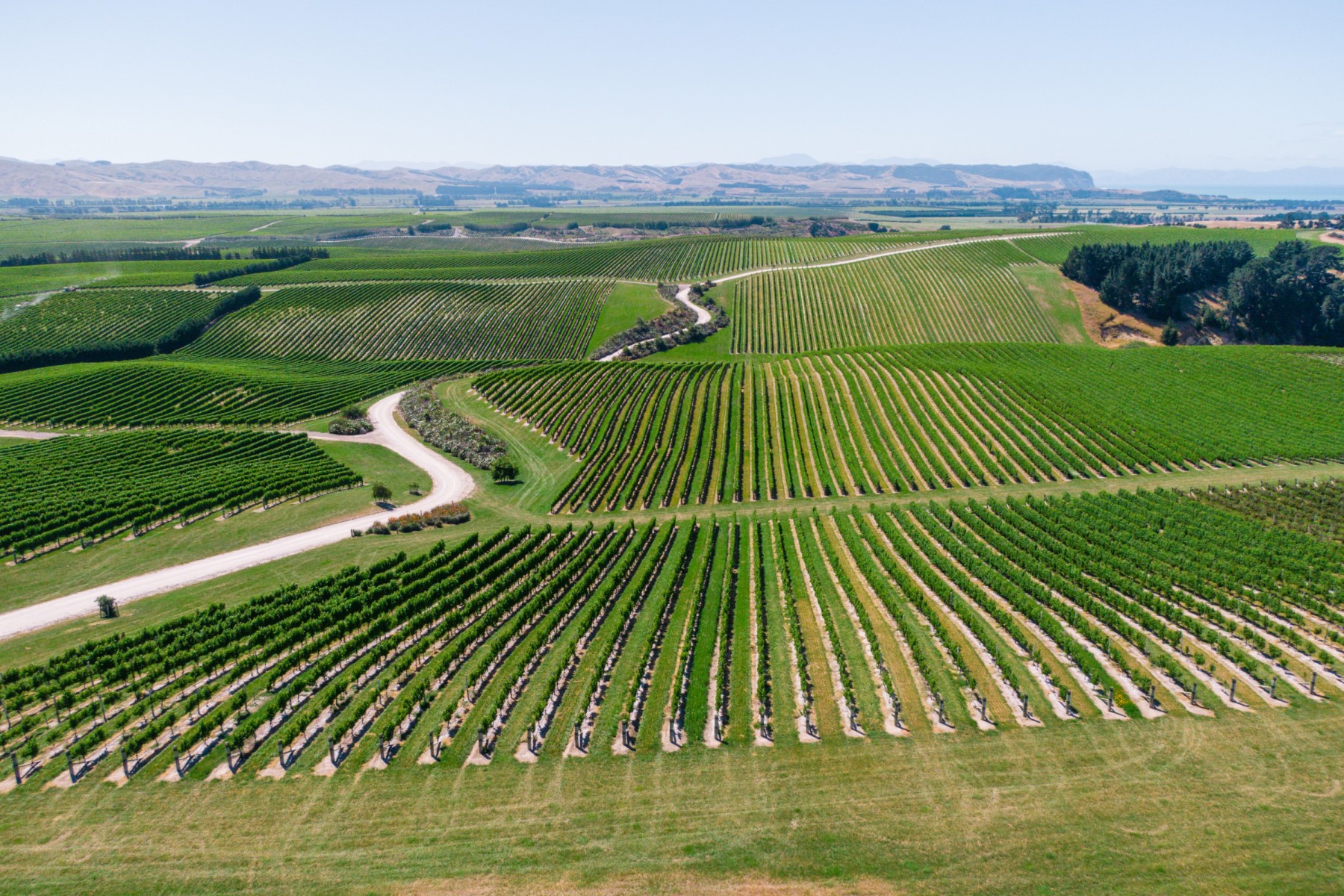
Yes and no. Grape-grower numbers have fallen to historic lows of 681, but this doesn’t tell the whole story. In 2023, the New Zealand wine industry experienced its third-highest vintage yield in the past decade and the highest average grape price per tonne.
So, while the industry has fewer growers, those growers are producing more grapes. This could be a sign that larger operations are buying out smaller vineyards. Increasing the size of a vineyard has many advantages that come with larger-scale production.
Overall, New Zealand's wine exports have been steadily increasing over the past few years, with a focus on international markets like the United States, Australia, the United Kingdom, and Canada.
If you are looking to make a career out of making wine or growing grapes, there’s no better place to learn than in New Zealand.
Where can I study winemaking in New Zealand?
There are several institutions around New Zealand where you can study winemaking or viticulture. These institutions offer programs ranging from certificates to degrees in wine-related fields.
Eastern Institute of Technology (EIT):
EIT offers programs in Viticulture and Winemaking, including:
-
NZ Certificate in Cellar Operations (Level 3)
-
NZ Certificate in Winegrowing (Level 4)
-
Bachelor of Viticulture and Wine Science
-
Graduate Diploma in Wine Science (Level 7)
-
Graduate Diploma in Viticulture Science (Level 7)
Lincoln University:
Lincoln University, located in Canterbury, offers degrees in Viticulture and Oenology, including a Bachelor of Viticulture and Oenology and a Postgraduate Diploma in Viticulture and Oenology. They also have a Master of Wine and Viticulture programme.
Nelson Marlborough Institute of Technology (NMIT):
NMIT provides programs in Viticulture and Winemaking, offering diplomas and degrees, including a Bachelor of Viticulture and Winemaking.
Otago Polytechnic:
Otago Polytechnic offers a Bachelor of Viticulture and Winemaking programme, providing students with practical experience in the wine industry. The Central Campus, based in Cromwell, also offers diplomas and certificates in:
-
Cellar Operations
-
Horticulture
-
Viticulture
Unitec Institute of Technology:
Unitec in Auckland offers a Bachelor of Applied Science in Viticulture and Winemaking, covering the scientific and practical aspects of the industry.
University of Auckland:
The University of Auckland offers a Bachelor of Science in Viticulture and Oenology, providing a scientific foundation for understanding grape growing and winemaking.
Waikato Institute of Technology (Wintec):
Wintec offers a Bachelor of Viticulture and Winemaking, providing students with hands-on experience and industry connections.
Massey University:
There are a number of general programmes students can study that would be suitable for students interested in beginning their career, including:
-
Bachelor of Agribusiness
-
Bachelor of Horticulture
-
Bachelor of Science (Plant Science major)
-
Aligned Masters programmes
What do our customers say?



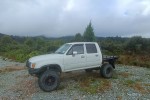

For every (wise)move







